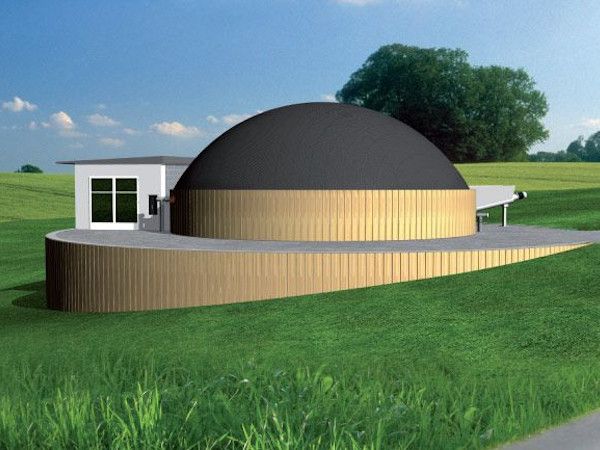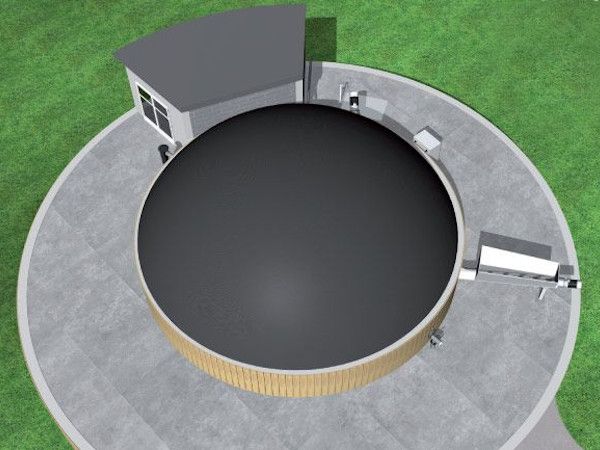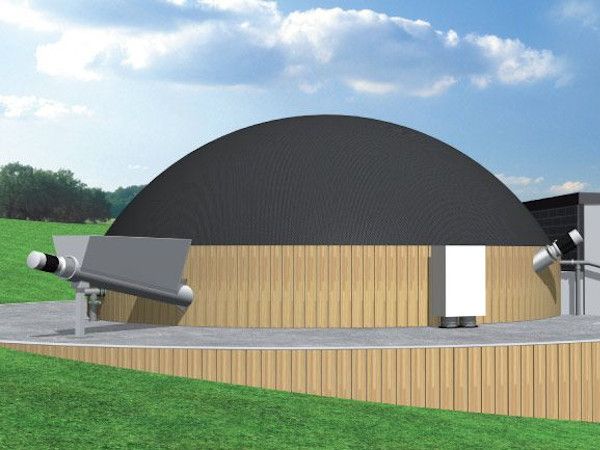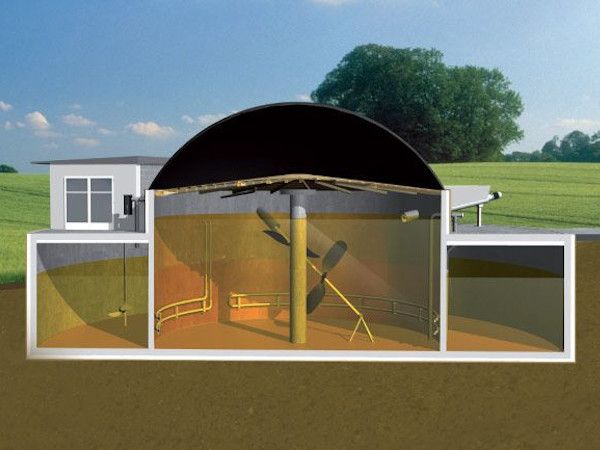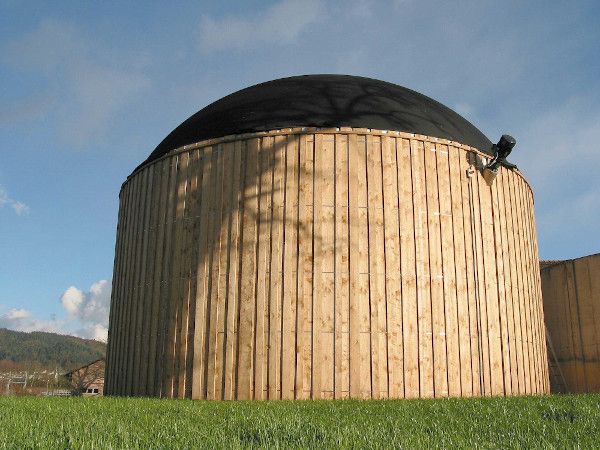Biogas
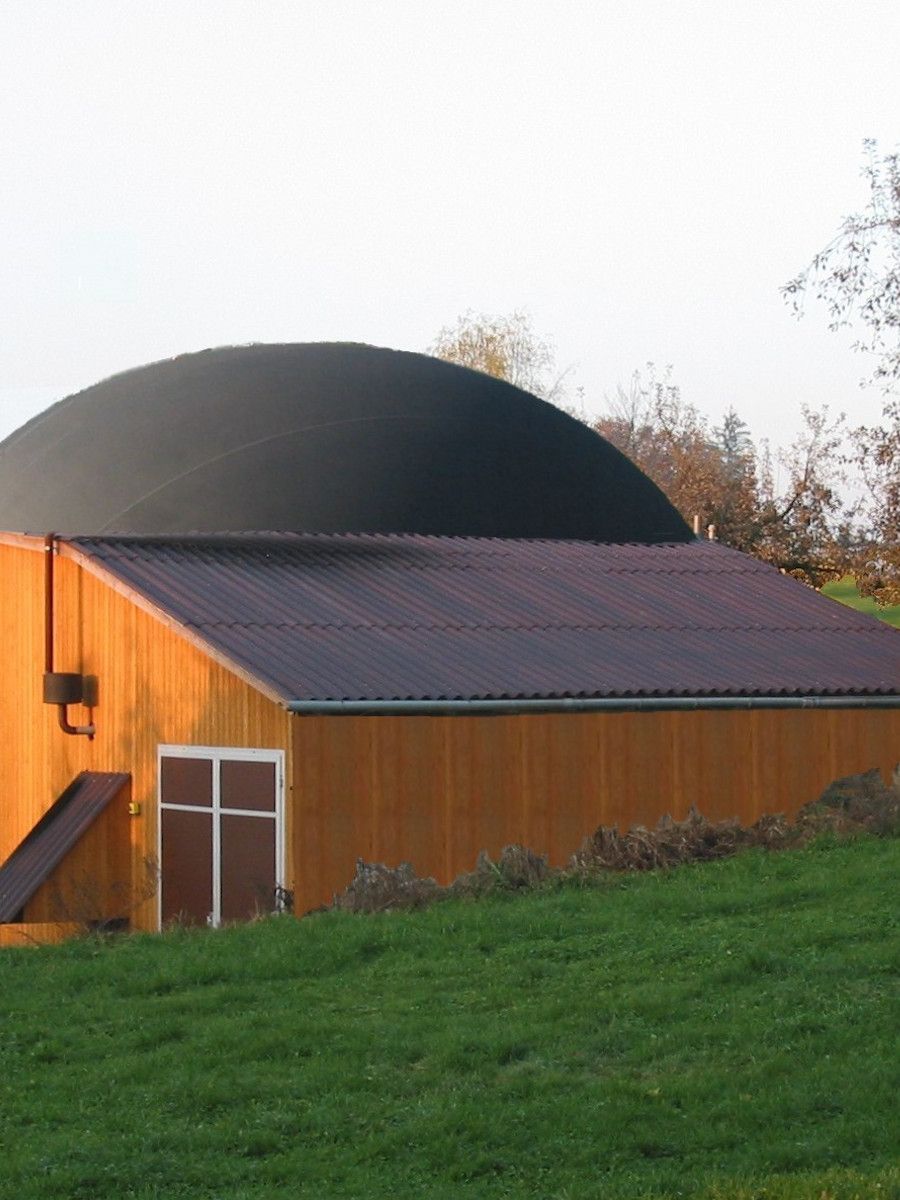
Biogas (methane gas) is a natural gas which is produced by bacteria from organic matter under exclusion of air and heat. Liquid manure and co-substrates are pumped into the fermenter at regular intervals approx. 1-2 times a day. The bacteria live and multiply at approx. 38° C, therefore the liquid manure is heated to 38° C in the fermenter. These bacteria (analogous to digestion in the stomach) split the organic substance further in the absence of air.
This produces methane gas, which is collected under the gas hood and led via the gas pipe to the combined heat and power unit (CHP). The CHP burns the gas and uses the energy to drive a generator, which generates electricity. This electricity can be used for personal use or fed into the public grid. Heat is also generated, which is used for fermenter heating. Residual heat can be used to heat houses, warehouses etc..
After gas extraction, the fermented liquid manure is spread on the land. The slurry has the following advantages due to the fermentation:
- Better flow properties
- Highly available nitrogen
- Less odour
- Weed seeds and germs have been killed.
Are you planning a new building or conversion? We are there for you: from planning to commissioning and support you with your project.
